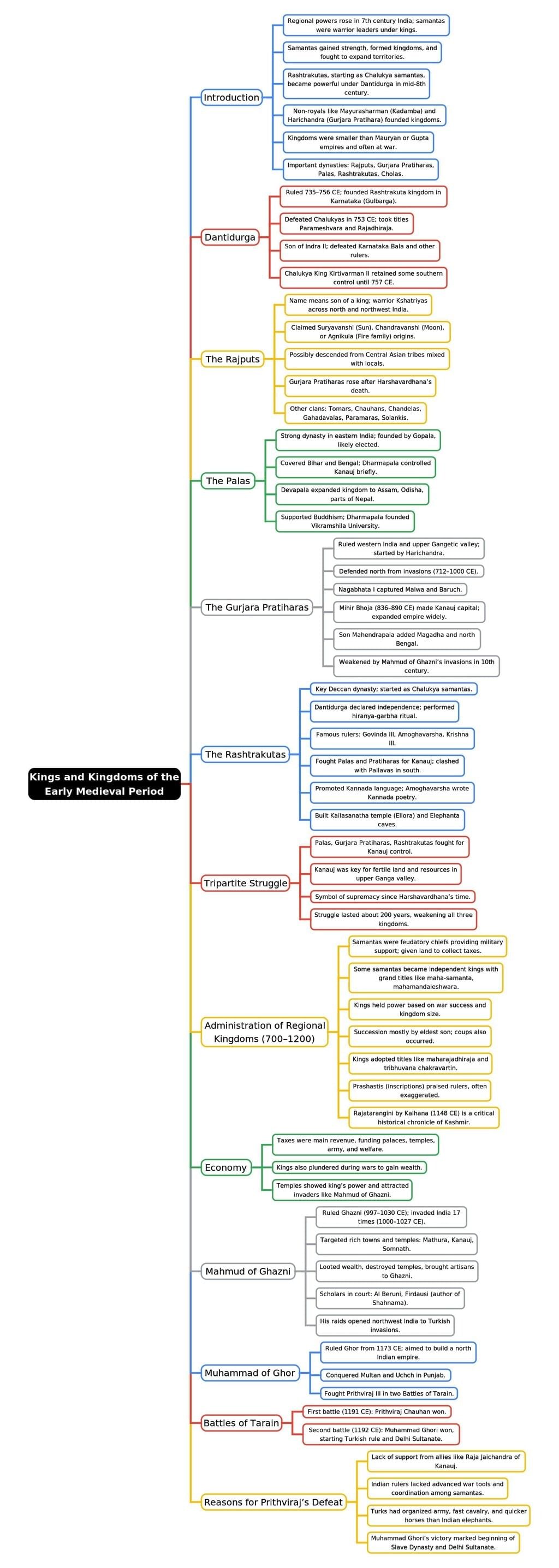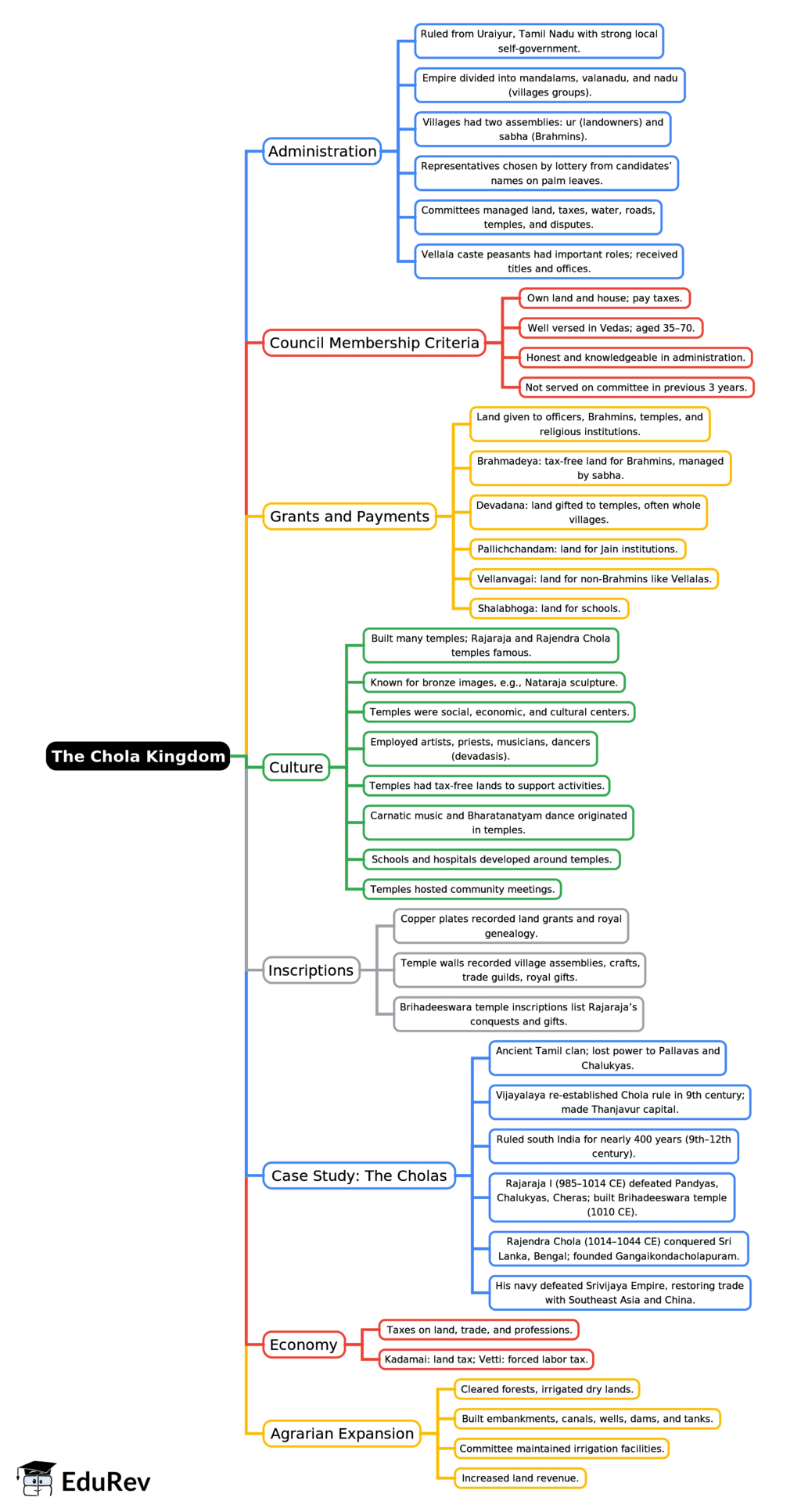Class 7 Exam > Class 7 Notes > Social Studies (SST) Class 7 (Old NCERT) > Mind Map- Kings and Kingdoms
Mind Map- Kings and Kingdoms | Social Studies (SST) Class 7 (Old NCERT) PDF Download


The document Mind Map- Kings and Kingdoms | Social Studies (SST) Class 7 (Old NCERT) is a part of the Class 7 Course Social Studies (SST) Class 7 (Old NCERT).
All you need of Class 7 at this link: Class 7
|
63 videos|371 docs|46 tests
|
FAQs on Mind Map- Kings and Kingdoms - Social Studies (SST) Class 7 (Old NCERT)
| 1. What are the main roles of kings in historical societies? |  |
Ans. Kings historically served as the primary rulers and decision-makers in their societies. They were responsible for maintaining order, providing protection, and ensuring the welfare of their subjects. Additionally, they often led military campaigns, enforced laws, and managed the economy. Kings also played a significant role in cultural and religious affairs, often serving as the head of the state religion or patronizing the arts.
| 2. How did the concept of monarchy evolve over time? |  |
Ans. The concept of monarchy has evolved significantly from ancient times to the modern era. Initially, kings ruled with absolute power, often claiming divine right. Over time, the rise of democratic ideals and revolutions led to constitutional monarchies where the king's powers were limited by law. In contemporary times, many monarchs serve more as ceremonial figures rather than absolute rulers, with elected governments handling most political affairs.
| 3. What were the criteria for becoming a king in historical contexts? |  |
Ans. Historically, the primary criterion for becoming a king was usually birthright, meaning one had to be born into a royal family. In some cultures, the ability to demonstrate strength, wisdom, or military prowess could also play a role. In certain cases, leaders were elected by nobility or councils, and in others, warriors could seize power through conquest.
| 4. How did kings maintain their power and authority? |  |
Ans. Kings maintained power through a combination of military strength, strategic alliances, and control over resources. They often relied on a loyal nobility who supported their rule in exchange for land and privileges. Additionally, kings used laws, taxes, and sometimes propaganda to reinforce their authority. Religion also played a crucial role, as many kings were seen as chosen by the gods, which helped legitimize their rule.
| 5. What impact did kings have on the culture and society of their time? |  |
Ans. Kings greatly influenced the culture and society of their time. They were patrons of the arts, commissioning works that reflected their values and power. Their decisions on laws and governance often shaped societal norms and practices. Additionally, kings could promote education, religion, and public works, leaving a lasting legacy on their civilizations. Their reigns often marked significant cultural periods, such as the Renaissance or the Golden Age of a civilization.
Related Searches

















